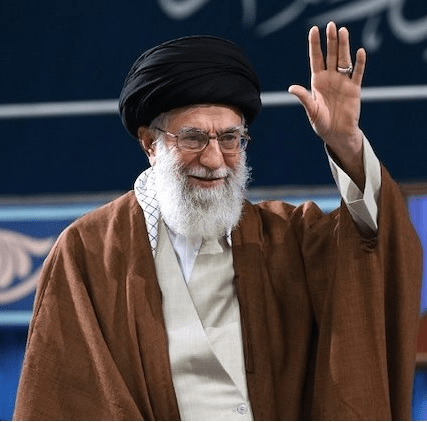
Supreme Leader Ayatollah Khamenei Faces Critical Decision on Iran’s Nuclear Doctrine After Israel’s Assassination of Hamas Leader Ismail Haniyeh
Fiona Nanna, ForeMedia News
7 minutes read. Updated 11:17AM GMT Wed, 21August, 2024
In the shadowy corridors of Tehran’s power, the assassination of Hamas leader Ismail Haniyeh at the end of July—widely believed to have been carried out by Israel—shattered a fragile equilibrium. This escalation in the longstanding conflict between Iran and Israel couldn’t have come at a worse time, with newly sworn-in President Masoud Pezeshkian still acclimating to his role when this geopolitical fireball landed in his lap.
For Iran’s Supreme Leader Ayatollah Ali Khamenei, Haniyeh’s assassination was more than a provocation; it was an existential challenge. The explosion that claimed the Hamas leader’s life, which Tehran suspects was the result of a missile launched from within its own borders, breached Iranian sovereignty and placed Khamenei’s 2003 fatwa prohibiting the manufacture, use, and storage of nuclear weapons under intense scrutiny.
Strategic Implications
Even before Haniyeh’s assassination, a high-level debate within Iran questioned whether Khamenei’s fatwa on nuclear weapons still aligned with the nation’s strategic priorities. A senior Iranian official, speaking to Al Jazeera on condition of anonymity, disclosed that this debate has intensified in the wake of the assassination.
Khamenei, who has steered Iran through global shifts ranging from the end of the Cold War to the rise of U.S. unipolarity and conflicts in Afghanistan, Iraq, and Syria, now faces a decision that could reshape the Middle East’s strategic landscape. This decision comes at a time when negotiators are frantically working to reach a ceasefire deal to end Israel’s brutal war on Gaza, and three weeks after the assassination, Iran has yet to signal its next move.
When asked whether Iran is delaying an attack on Israel to allow ceasefire talks to proceed, Iran’s permanent representative to the United Nations, Amir Saeid Iravani, told Al Jazeera, “The timing of Iran’s response will be meticulously orchestrated to ensure that it occurs at a moment of maximum surprise.”
The assassination has sparked fierce debate within Iran, with some voices arguing that restraint might be the wisest course. They fear that a retaliatory strike could plunge Iran into a protracted and costly confrontation with Israel, potentially weakening Tehran and its regional allies.
Those advocating for restraint, representing a cross-section of Iran’s political spectrum, also hope that calm now could serve as leverage in future negotiations with the U.S., potentially opening a new chapter in U.S.-Iran relations and presenting a more potent response to Israeli Prime Minister Benjamin Netanyahu’s provocations.
Khamenei’s Choice
However, Khamenei does not seem inclined towards restraint. Speaking to officials on August 14, he emphasized that Iran must not be intimidated by the psychological warfare employed by its enemies. Citing the Quran, he warned that “non-tactical retreats, whether in military, political, media, or economic fields, will incur divine wrath.” Although no official decision has been announced, Khamenei’s rhetoric suggests that his choice could significantly alter the strategic landscape of the Middle East.
Adding to the complexity is the nuclear question. Iran’s nuclear policy has so far centered around its right to possess peaceful nuclear technology, guided by Khamenei’s fatwa and the desire to exist within a nuclear-weapons-free zone. However, Israeli statements, including Netanyahu’s remarks at the UN last September and an Israeli minister’s advocacy for leveling Gaza with nuclear weapons, have been perceived as direct threats by Iran, prompting a possible reevaluation of its strategy.
The U.S.’s unilateral withdrawal from the nuclear agreement further complicates matters. Iran had entered nuclear talks hoping that sanctions would be lifted in exchange for restrictions on its nuclear program, but with the deal in disarray, Tehran might feel compelled to recalibrate its approach.
Will Iran’s Nuclear Doctrine Change?
“Iran’s response must punish the aggressor for its act of terrorism and infringements upon Iran’s national sovereignty while bolstering Iran’s deterrence capabilities to induce profound regret within the Israeli regime,” UN Ambassador Iravani stated. However, he added, “Iran’s response must be carefully calibrated to avoid any possible adverse impact that could potentially influence a prospective ceasefire in Gaza.”
This delicate balancing act seems nearly impossible. An anonymous official highlighted that Israel’s shift from a policy of nuclear ambiguity to clear nuclear threats against Iran suggests that they may later target Iran’s nuclear facilities directly. “Iran needs to maintain its sovereignty,” the official stressed, adding that discussions are underway about revising Iran’s nuclear doctrine.
When asked if Iran, in changing its nuclear doctrine, would move towards producing nuclear weapons—especially since Western and Israeli estimates suggest Iran is no more than a month away from producing a nuclear warhead—the official responded negatively. “Any change in the nuclear doctrine does not necessarily mean moving towards nuclear weapons,” the official clarified, explaining that it could mean altering the current nuclear strategy to focus more on Israel, which is perceived as a direct threat.
A Bitter Choice
Khamenei’s decision could set a new course not only for Iran but for the entire Middle East. The supreme leader is faced with a bitter choice, weighing options that all come with significant risks and uncertain outcomes. As the world watches, Tehran is grappling with one of the most critical decisions it has faced in decades.
The stakes have never been higher.

